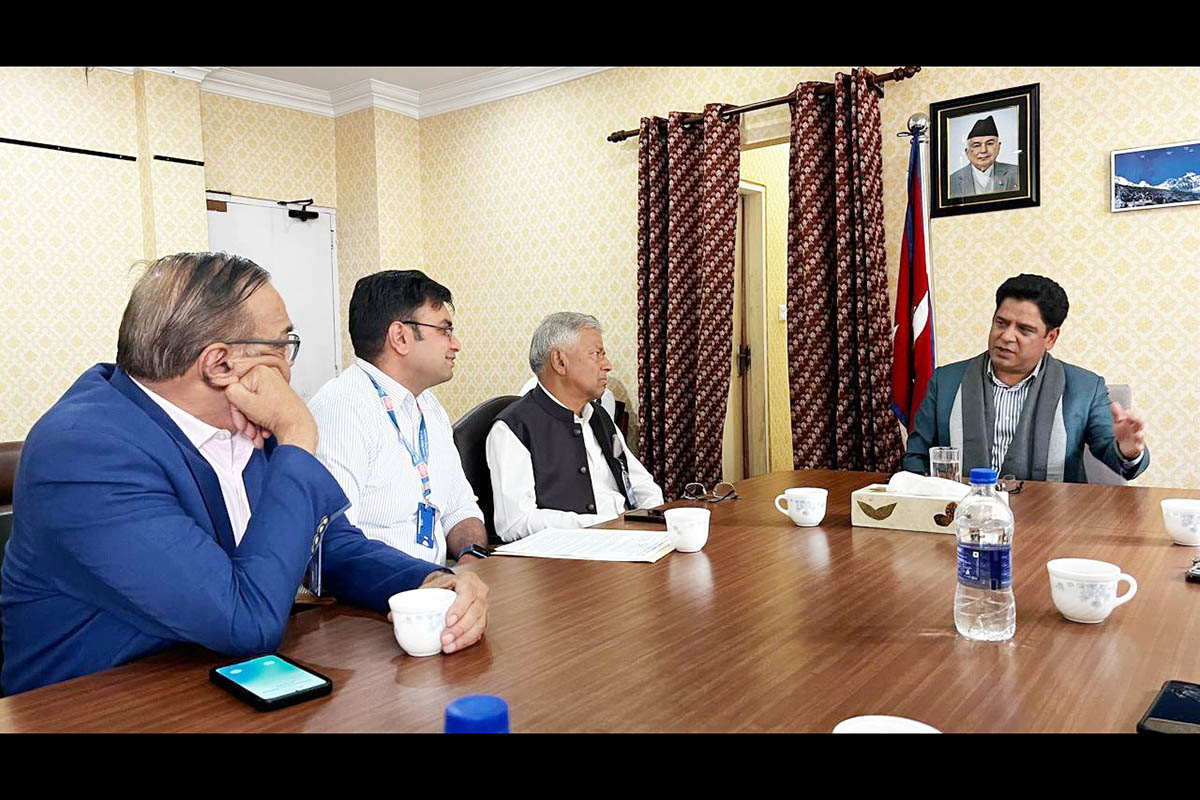
KATHMANDU: Nepal Foreign Trade Association (NFTA) has drawn the attention of Minister for Industry, Commerce and Supplies, Damodar Bhandari, to the complexities arising from legal provision requiring Maximum Retail Price (MRP) to be mentioned on the labels of goods intended for sale in the market.
A delegation led by NFTA First Vice President, Anil Kumar Agrawal, met Minister Bhandari at the Ministry on Tuesday to highlight the challenges and request facilitation. NFTA stated that while the current government’s initiative to address shortcomings in trade and business laws has generated positive momentum among investors and entrepreneurs, the mandatory provision for MRP labelling has created difficulties for businesses.
Businesspersons affiliated with NFTA have raised concerns since the Department of Commerce, Supplies and Consumer Protection made it compulsory from April 2, 2025, to include a label with six types of details, including price, batch number, and manufacturing date, as stipulated in sub-section 2 (f) of section 6 of Consumer Protection Act, 2075 (2018).
NFTA argues that it is highly challenging for importers or producers to determine an MRP, as transportation costs depend on various factors such as freight charge inconsistencies, competition in transportation, road infrastructure, seasonal conditions, and fuel prices.
The delegation informed Minister Bhandari that the Consumer Protection Act, 2075 (2018), and its regulations do not specify whether two or three types of MRPs can be set based on costs. Even if businesses were allowed to set multiple MRPs, producers or importers would struggle to anticipate demand across different locations and times.
Similarly, the delegation pointed out that the law lacks clarity on the unit to which the label should be affixed. Some imported goods cannot be labelled individually, and foreign producers and exporters are unwilling to affix labels at the packaging stage for goods destined for a small market like Nepal.
NFTA also expressed concerns that if customs offices base the valuation of imported goods on MRP and attempt to clear goods using the highest MRP set for locations with higher transportation costs, businesses may face difficulties in releasing their goods from customs.
Additionally, NFTA stated that determining the MRP of goods is inherently complex, as it involves analysing multiple factors beyond transportation costs, which would ultimately increase the cost of doing business. The delegation urged the Industry Minister not to make MRP mandatory for goods other than food items, medicine, and basic commodities.
In response, Minister Bhandari explained the rationale behind the mandatory MRP provision and assured that the Ministry is prepared to facilitate issues that complicate business operations. He recalled that the government has recently amended several laws aimed at reducing business difficulties and suggested that NFTA discuss the challenges of MRP labelling point by point with Ministry officials to reach a concrete conclusion.
READ ALSO:





-1772448796.jpeg)
